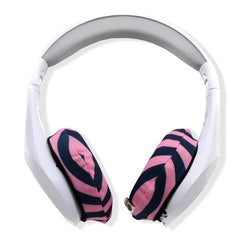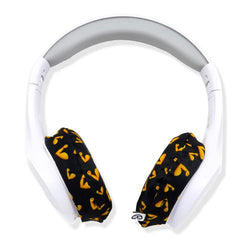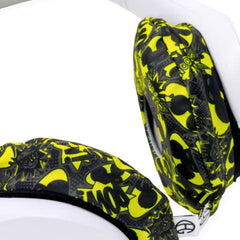Do Headphones Lose Sound Quality Over Time?
Your average audiophile has a careful and conscientious ear for sound.
Regular people listen to songs, albums and playlists but audiophiles are listening to tone, warmth, to the production process and to playback.
They’re passionate and knowledgeable about audio quality in the same way a photographer might be about set-up, shutter speed, focus and exposure.
They might have the best gear, too, although that’s not always a pre-requisite for audiophilia.
One thing that you may notice about some audiophiles is that they treat headphones with a kind of mystical quality, using ritual or reverence as a means of ensuring a long life for a set of cans.
You’ll see plenty of anecdotal advice for whether headphones lose sound quality over time or not and how to help prevent it but is there any truth to it?
Does Audio Quality Degrade in Headphones?
Good question.
Some people swear that it does and others that it doesn’t or at least that it won’t for many, many years.
Some headphones last decades sounding as spotless as the day they were purchased.
Others break within a year.
The price you paid for them can make a difference but not always. The internal components of a headphone can be delicate and if there’s a degradation of sound quality then it could have any number of reasons such as carelessness on the part of the owner or a flaw in the manufacturing process.
Issues with the external parts of a headphone can be problematic too.
If you’ve landed on this website, then you may have had experience with sweat-damaged headphones.
Most advice suggests that headphones don’t so much degrade as cut-out completely.
The drivers are pretty hard wearing so often it’ll be the connectors, solder and cable joints that go first.
You might not own your headphones long enough to hear a loss in sound quality.
If you buy a super-cheap pair, then they’re not built to last and you should expect to replace them sooner than if you’d purchased a premium pair. Although, again, there are many exceptions to this.
If you enjoy buying new models or if you switch between different headphone regularly, then you might never notice a loss of quality because you haven’t worn them enough.
If you think that your headphones are losing sound quality, then you should first look at the earpads.
Old and warn cushions can affect sound quality but they can almost always be replaced.
We’d recommend adding sweat-proof headphone covers next time so that you can help prevent damage to the cushions in future. You might also want to look at how clean your headphones are because dirt and grime can block sound coming through making the audio sound poor and muffled.
Will Burning in my Headphones Help the Sound Quality?
If you’ve bought a high-end pair of headphones, then you’ll probably hear someone telling you to ‘burn them in’.
Burning them in is a little like breaking in a new pair of shoes: it’s the idea that a product isn’t quite perfect fresh out of the box.
According to Headphone Zone website:
" "Burning in" headphones is a practice wherein a user plays audio through their brand-new headphones for a number of hours or days at a stretch in order to break them in and bring about the best sound from the headphones.
If you talk to 10 audiophiles in a room, it's likely that each person would have a certain magic number of hours that they've burned in their own headphones for. This number is usually as short as 4 to a ridiculous 400 hours!"
The Case for Burning In
There’s no set time as to how long a pair of headphones needs to be ‘burned in’.
Some people seem to think several hours will do and some say several hundred. Steve Guttenberg (not the Police Academy guy) writing for CNET says that his audiophile friends believe headphones sound better after the first 100 hours.
Later in the article, he asks a local manufacturer about ‘burning in’ and the guy says that all electronic items need time to ‘break-in’, and that after around 50-hours of listening there should be a noted improvement.
There’s a difference of opinion as to how to approach the initial 50-hours.
Some audiophiles will have the headphones playing constantly during that time and will use a selection of different sounds including white noise. Others, like the manufacturer mentioned in the CNET article, say that the process doesn’t need to be done in a single sitting.
Website Headphonesty suggest that burning in sounds plausible because the diaphragm inside the headphone (a membrane that converts mechanical vibrations into sounds) might be too stiff when it’s first used.
Burning it, it says, helps loosen up the diaphragm and gives better sound.
The Case Against Burning In
Writing for The Sound Guys website, Christian Thomas takes a different view.
He believes that it’s actually the “relaxation” of the foam in the cushions that needs “burning-in”. He gives the example of a butt print on a sofa when you regularly sit in the same spot and says headphone earpads do the same thing. A relaxed pair of headphones will fit your head better which will improve sound quality and noise isolation.
He believes that what people think has been achieved by playing continuous noise for 50+ hours is actually down to the cushions fitting correctly.
Bryan Gardiner writing for Wired agrees. He’s a little more explicit with his opinion that “Earphone burn-in is a bunch of hokum”.
He believes that manufacturers don’t want to tell audiophiles that they’re wrong.
He also points out that there’s also no standard industry testing for headphones.
Matt Engstrom, director of monitoring products at Shure, tells Gardiner that Shure engineers have thoroughly tested used pairs of their headphones ‘time and time again’ and found they’re the same now as they were when they came off the production line.
Headphone wearers should also factor in that our ears get used to sound.
If you’ve bought a brand-new pair of headphones, different from those you’ve worn previously, then the sound is going to sound…well, different, even unusual or distracting at first.
You’ll get used to them and perhaps it’s this that leads audiophiles to believe that “burning-in” genuinely works.
Without in-depth study, burning-in will always be a controversial subject among audiophiles. Some people swear it’s true and others think its nonsense. Almost all will offer proof to support their belief.
We’d be interested to hear what you think in the comments below.





